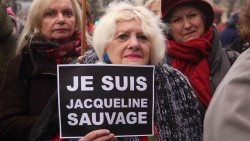
Police did not use disproportionate force during identity check
ABSTRACT
In the case of Perrillat-Bottonet v. Switzerland (application no. 66773/13) the European Court of Human Rights held, unanimously, that there had been no violation of Article 3 (prohibition of inhuman or degrading treatment) of the European Convention on Human Rights regarding the injury to the applicant observed after his arrest.
By a majority, that there had been no violation of Article 3 regarding the investigation carried out into the applicant’s allegations.
The case concerned an identity check and arrest by the Geneva police during which Mr Perrillat- Bottonet claimed to have been subjected to a disproportionate use of force.
The Court found that the recourse to force, such as an arm lock, had been justified by the resistance put up by Mr Perrillat-Bottonet during his arrest. It noted that it had not been established that the arm lock effected by the gendarmes had been the sole cause of the injury sustained by the applicant.
It also considered that the decision of the Swiss courts not to re-examine in the reopened proceedings the gendarmes or Mr Perrillat-Bottonet’s friend, who had witnessed the scene, had not detracted from the effectiveness of the investigation.
PRINCIPAL FACTS
The applicant is a French national who was born in 1953 and lives in Cruseilles (France).
On the night of 4 October 2009, when he was leaving a bar with a friend, Mr Perrillat-Bottonet saw two gendarmes putting a parking ticket on his badly parked car. They asked him for his driving licence and vehicle documents but Mr Perrillat-Bottonet put up resistance. He was taken to the police station, after the gendarmes had immobilised him by an arm lock, and placed him in a sobering-up cell. Mr Perrillat-Bottonet claimed that he was put into the cell naked, shivering with cold and parched with thirst.
The applicant was subsequently given 15 days’ sick leave, as he was suffering from a massive rotator cuff injury to the right shoulder. A police report was drawn up on 21 October 2009, as were records of the hearing of the friend who had been with the applicant on the night in question and of the gendarmes who had arrested him. Mr Perrillat-Bottonet filed a criminal complaint against the gendarmes. The ensuing proceedings were discontinued on 17 December 2009. On 9 June 2010 the Indictment Division reopened the proceedings at the applicant’s request, considering that it had to establish whether the arm lock inflicted on him by the gendarmes had been disproportionate, the nature of Perrillat-Bottonet’s injuries and the details of his medical history.
The Indictment Division observed that the gendarmes had repeatedly stated that Mr Perrillat- Bottonet had been drunk on the night in question, that his friend had repeatedly told him to calm down and that, according to the expert medical reports, the arm lock could not have been the sole cause of the applicant’s injuries, some of which indicated an earlier injury to the shoulder. In January 2012 the prosecution refused a request by the applicant to re-examine the two gendarmes and the applicant’s friend as witnesses. His request to hear evidence from the surgeon who had operated on him in December 2010 was also rejected.
On 4 April 2013 Mr Perrillat-Bottonet’s final appeal against the decision discontinuing the proceedings was dismissed with final effect. The Federal Court held in particular that additional witness evidence would have been manifestly incapable of calling the conclusions of the medical experts into question since it could only convey external impressions and not contribute to establishing with precision the intensity of the arm lock.
COMPLAINTS
Relying in particular on Article 3 (prohibition of inhuman or degrading treatment), the applicant complained that he had been subjected to an unjustified and disproportionate use of force during his arrest and alleged that there had been no diligent investigation into the incident on account of the denial of his requests, after his trial had been re-opened in June 2010, for evidence to be taken from the gendarmes involved and from the friend accompanying him. He also complained about the conditions of his detention in the sobering-up cell.
DECISION OF THE COURT
About the violation of article 3 (treatment):
The statements of Mr Perrillat-Bottonet and the gendarmes conflicted. The applicant denied their assertions that he had been drunk on the night in question and had resisted arrest. The Court noted that the friend accompanying Mr Perrillat-Bottonet had said he had tried to calm tensions between the police and his friend, who had been drinking alcohol with him all evening. Accordingly, the Court found that the gendarmes had been faced with a risk of “débordements”, or at least a form of passive resistance on Mr Perrillat-Bottonet’s part, and that the recourse to coercive measures such as an arm lock had therefore been justified. This was a relatively standard measure which did not in itself disclose conduct contrary to the Convention. The Court also observed that the gendarmes had not used any other coercive measures or violence when arresting the applicant. While the injury to his right shoulder, which had resulted in fifteen days’ sick leave, had without any doubt amounted to treatment falling within the scope of Article 3, the expert reports had established that – having regard to Mr Perrillat-Bottonet’s medical history – minor use of force would have sufficed to cause the injuries in question. Accordingly, the Court found that there had not been a disproportionate use of force against the applicant and held that there had been no violation of Article 3 in that regard.
With regard to the applicant’s complaint about the conditions of his detention in the sobering-up cell, the Court held that Mr Perrillat-Bottonet had not directly challenged before the Federal Court the Indictment Division’s decision of 9 June 2010 to discontinue its examination of all the applicant’s allegations other than the one concerning the disproportionate use of force. The Court therefore rejected that complaint for non-exhaustion of domestic remedies.
About the violation of article 3 (investigation):
The Court noted at the outset that the incident at the origin of the application had immediately given rise to an investigation by the prosecuting authorities. After discontinuing the proceedings for the first time on 17 December 2009, the investigation was reopened following an order of the
Indictment Division of 9 June 2010. Expert reports were requested and both the applicant and the other gendarmes present during the arrest were re-examined, though the prosecution did not consider it necessary to re-examine Mr Perrillat-Bottonet’s friend or the two gendarmes who had arrested him, whose statements had been taken during the earlier investigation. The reopened proceedings were discontinued on 19 January 2012 and the applicant’s appeals were examined by the Criminal Division and the Federal Court on 16 April 2012 and 4 April 2013 respectively. The Swiss authorities could not therefore be criticised for not having promptly and thoroughly examined the allegations of ill-treatment made by Mr Perrillat-Bottonet.
The Court then examined the question whether the decision of the courts not to re-examine the gendarmes and the applicant’s friend, and to reject as out of time his request to hear the surgeon who had operated on him in December 2010, had detracted from the effectiveness of the investigation. Finding that the only action by the gendarmes of which the applicant had complained was an arm lock, which, according to medical experts whose reliability had never been challenged, could not have been the sole cause of Mr Perrillat-Bottonet’s injury, the Court did not see how a further examination of the gendarmes and the applicant’s friend could have invalidated the conclusions of the medical experts. Furthermore, irrespective of the applicant’s failure to request within the time allowed by the prosecution that evidence be heard from the surgeon who had operated on him, he had not explained how the surgeon’s evidence would have supplemented the investigation. Consequently, the Court held that there had been no violation of Article 3 regarding the investigation into Mr Perrillat-Bottonet’s allegations.









